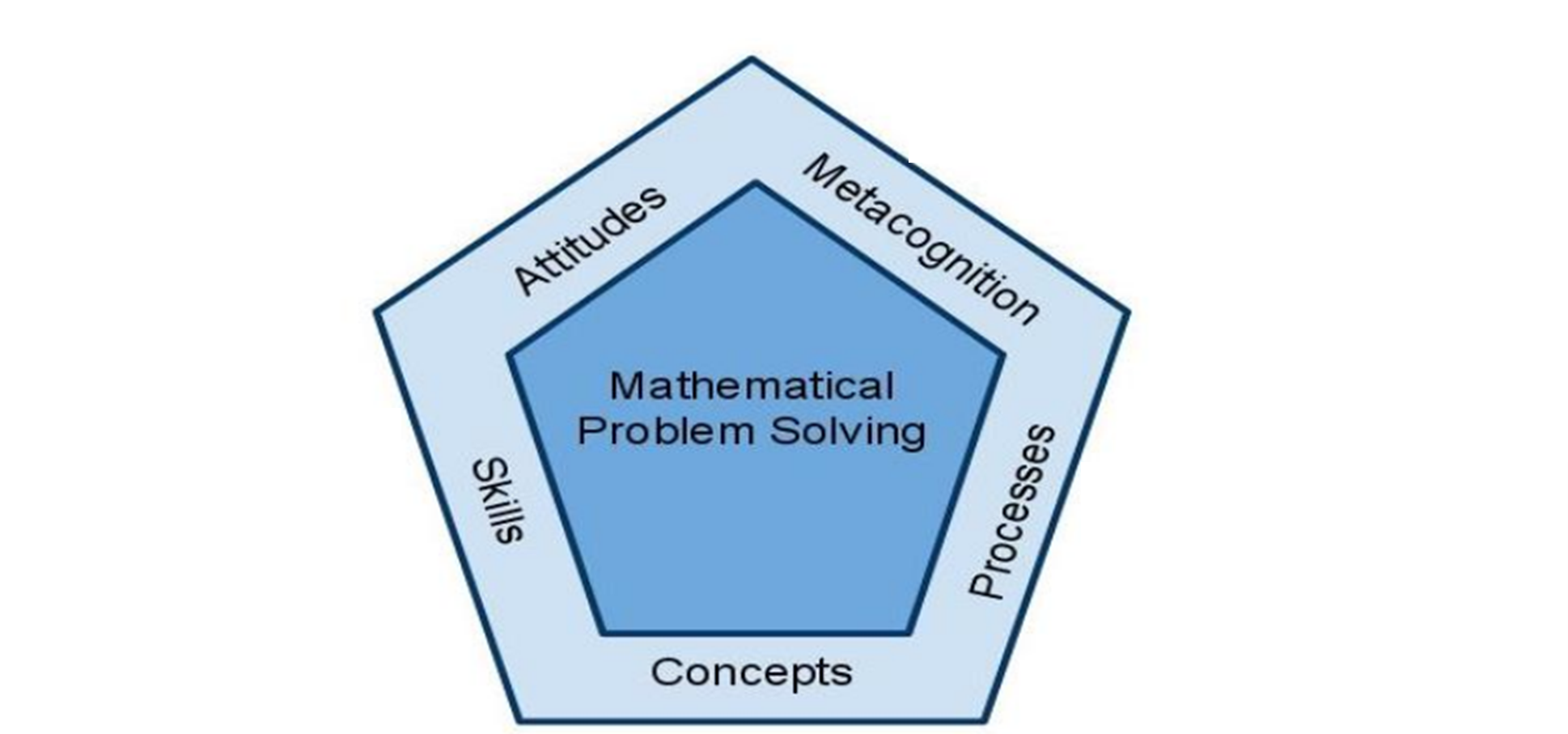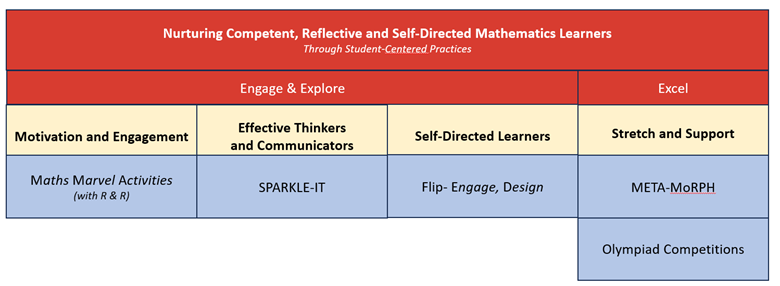Mathematics
Mathematics
At Pioneer Primary School, we believe that every student possesses the potential and ability to learn and thrive in Mathematics. Our teaching approach is anchored in mathematical problem-solving and is designed to strengthen the five key components of the Mathematics Framework, in alignment with the MOE National curriculum. Beyond just learning about mathematical concepts, we aim to immerse our students in the world of Mathematics—encouraging them to think, reason, and approach challenges like mathematicians. By doing so, students not only develop strong mathematical skills but also experience the joy of learning Mathematics as a meaningful and empowering part of their daily lives.

Fig 1: Taken from the Primary Mathematics Teaching and Learning Syllabus

Fig 2: Overview of programmes in the Mathematics department
SPARKLE (Study, Ponder, Apply, Review , Knowledge Leap, Extend)
Adapted from Polya’s 4-stage problem-solving approach, SPAR KLE is our in-house thinking routine to develop adaptive and critical thinking. Students are guided to adopt this structured, iterative cycle as they approach and solve different types of problems.
To deepen Mathematical reasoning, elicit connections across concepts and encourage multiple solution strategies, SPARKLE-IT tasks are intentionally designed and facilitated throughout the year during curriculum time. These tasks are bite-sized, open-ended in nature and provides the space for students to communicate their understanding and make their thinking visible.
Beyond these tasks, we continually curate opportunities for our students to engage with non-routine, real-world problems. These challenges require the application of multiple concepts and encourage collaborative problem-solving, allowing students to co-construct mathematical solutions alongside their peers as they practise and apply the SPARKLE thinking routine.

|

|
|---|---|
|
Fig 3: SPAR KLE Thinking Routine – structured and iterative to approach problem-solving in various context |
Fig 4: Desired outcomes through SPARKLE-IT tasks and activities |
It is important that Mathematics remain relevant and interesting for our students. At Pioneer, we design fun and interactive activities that incorporate real-world applications and hands-on learning, to motivate and increase level of engagement in students. We want to spark curiosity in our students and inspire joy in learning.

|

|

|
|---|---|---|
|
Fig 5: Students working with manipulatives and games, making connections with Mathematics learning within and beyond the classroom |
||
Whenever possible, we collaborate with other departments to highlight interdisciplinary connections, showcasing the authenticity and relevance of Mathematics learning across various context. These experiences help our students see the value of Mathematics beyond the classroom.

|

|
|---|---|
|
Fig 6: Applying Mathematics to baking adventures |
Fig 7: Making connections to Mathematics as they participate in STEM Challenges (building boats) |
Flip-ED
As part of our efforts to encourage self-directed learning in Mathematics, we actively try to build the necessary skills, disposition and mindset in our students to take ownership of their own Mathematics learning through Flip-ED.
Ed-tech tools and online platforms are used to design learning packages, allowing students to explore concepts and practice at their own pace, within and beyond the classroom. These packages include self-assessments that encourage students to reflect on their understanding and track their own progress.

|

|
|---|---|
|
Fig 8: SLS Packages for students to explore and continue learning beyond classroom time |
|
META-MoRPH
(Math – Engage, Think, Achieve | Math – Reinforce concepts, Promote engagement, Harness confidence)
META-MoRPH are specially curated programmes to stretch and support across different readiness levels. These enrichment lessons provide targeted opportunities to both reinforce classroom learning and deepen mathematical thinking.
Beyond preparing students for academic success, META-MoRPH nurtures essential Mathematics problem-solving skills , habits and dispositions for our students to thrive and grow as a reflective and competent Mathematics learner, regardless of their starting point.
Aspects of these key programmes are incorporated within the curriculum to ensure a holistic development of your child as they learn Mathematics each and every day.
To support the learning of our students and complement our programmes, we also utilise a range of resources to build fluency and reinforce key concepts and skills.
|
In-house packages |
Factual Fluency Practices, Interleaved Distributed Packages, Maths Heuristic Packages |
|---|---|
|
Online learning platforms |
SLS (Singapore Student Learning Space), Koobits |
|
Hands-on learning |
Maths Manipulatives |

